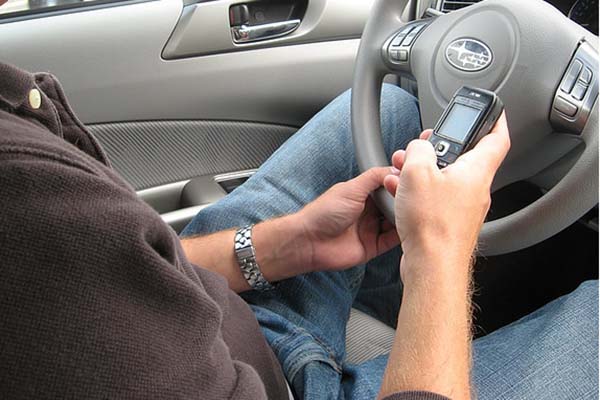When it comes to cellphones, we are no better than trained rats in a box.
Just the other day, I was stuck behind a driver playing with a cellphone while driving. I have gotten used to assuming that everyone doing something silly on the road is driving while distracted.
In Austin, San Antonio and several other Texas cities, it is illegal to text or hold a phone while driving. It is also illegal to hold a phone while driving in 14 states and to text while driving in 44 states.
So, why are people still using their phones while driving, even though most of us know it leads to hundreds of thousands of injuries in distracted driving crashes each year?
Because as it turns out, most of us are addicted to our phones.
In my introductory psychology class in college, my lab partner and I got a rat to train. The rat was in a small box with a small cup that could be filled with water and a bar on one side of the cage that the rat could press.
The rat was thirsty, so the water was a great reward. At first we gave the rat water when he went near the bar, then when he brushed it, next when he touched it, and finally when he pressed it.
After that, the ideal schedule of reward was to give it water about half the time it pressed the bar randomly. This schedule keeps the rat pressing the bar for a long time.
You create this schedule of reward for yourself with cellphone use. You pull your phone out at intervals that give you the reward of a new message about half the time you check it.
Once the habit is set, you start getting a serious craving to pull out the phone when too much time goes by. Cravings are painful, and so it is easy to give in and check the phone, particularly because the odds of crashing are small, even if they are vastly higher than they would be if you drove without texting.
Unfortunately no amount of information about the dangers of distracted driving is going to change people’s behavior. The habit to pull out the cellphone is at addiction-level strength.
Hefty penalties for distracted driving help a bit, but the odds of being pulled over are also low. It would send a strong message for all states to ban texting and require hands-free devices (although even talking on a hands-free device is still distracted driving).
It would also be valuable for the media to report more of the crashes that involve distracted driving, even when they do not involve fatalities.
Beyond laws and fines, what needs to happen is people need to protect themselves from themselves.
A key principle of changing behavior is to fix the environment to make desirable behaviors easy and undesirable behaviors hard.
If you’re a cellphone junkie, then create a new habit. Before you start the car, put your cellphone in the glove compartment or the console between the seats. Otherwise, you have about the same chance of keeping yourself from checking the phone while driving that a rat does of avoiding the bar.
Art Markman is the Annabel Irion Worsham Centennial Professor of Psychology and Marketing and founding director of the program in the Human Dimensions of Organizations.
This article first appeared on Texas Perspectives, a wire-style service produced by The University of Texas at Austin that is intended to provide media outlets with meaningful and thoughtful opinion columns on a variety of topics and current events.
Photo by: Jason Weaver/Flickr
